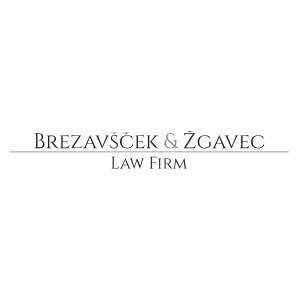Best ESG Advisory & Compliance Lawyers in Slovenia
Share your needs with us, get contacted by law firms.
Free. Takes 2 min.
Or refine your search by selecting a city:
List of the best lawyers in Slovenia
About ESG Advisory & Compliance Law in Slovenia
Environmental, Social, and Governance (ESG) advisory and compliance have become essential components for businesses operating in Slovenia. ESG frameworks guide organizations to be more responsible and sustainable by addressing issues such as environmental impact, social responsibilities, and corporate governance. In recent years, Slovenia has reinforced its commitment to promoting ESG standards by adopting European Union directives and implementing national regulations. Companies, both local and foreign, are increasingly expected to integrate ESG considerations into their strategy, operations, and disclosures to comply with legal requirements and to meet stakeholder expectations.
Why You May Need a Lawyer
Legal guidance in ESG advisory and compliance plays a crucial role for several reasons. Slovenian and EU ESG regulations are complex and dynamic. A lawyer can help you:
- Interpret and apply ever-evolving ESG laws and frameworks to your business
- Conduct compliance assessments and due diligence to identify ESG risks and opportunities
- Develop and implement suitable policies, practices, and reporting mechanisms
- Prepare required disclosures and avoid potential non-compliance penalties
- Respond to ESG-related inquiries or audits from authorities or investors
- Address disputes involving environmental, social, or governance issues
- Support with contract drafting or review to ensure ESG related clauses are clear and enforceable
- Assist with regulatory filings, licensing, and obtaining approvals for ESG initiatives
Whether you are a business owner, investor, or executive, engaging a lawyer with ESG expertise in Slovenia can help ensure your organization fulfills its regulatory obligations and secures a competitive advantage through responsible practices.
Local Laws Overview
Slovenia follows the European Union’s comprehensive ESG regulatory framework, strengthened by national laws and initiatives. Key legal aspects include:
- EU Taxonomy Regulation: Businesses must classify economic activities according to sustainability criteria set by the EU taxonomy
- Corporate Sustainability Reporting Directive (CSRD): Larger companies and public-interest entities must provide detailed ESG-related disclosures in their annual reports
- Non-Financial Reporting Directive (NFRD): Mandates environmental and social disclosures for big companies
- National Environmental Protection Laws: Slovenian environmental regulations govern issues like emissions, waste management, natural resource conservation, and energy efficiency
- Anti-Discrimination and Labor Laws: National social legislation ensures equality, labor rights, and workplace safety
- Corporate Governance Codes: Slovenian companies are expected to comply with best practices in governance, including integrity, transparency, and stakeholder engagement
The Slovenian government periodically updates and harmonizes its regulatory approach in line with EU trends, making regular compliance reviews crucial for businesses.
Frequently Asked Questions
What is ESG and why does it matter for companies in Slovenia?
ESG stands for Environmental, Social, and Governance. It matters because adhering to ESG standards is not only required by law for many organizations, but also improves investor confidence, brand reputation, and operational sustainability.
Which Slovenian companies must comply with ESG reporting requirements?
Currently, large public-interest companies, financial institutions, and companies exceeding certain staff or turnover thresholds must comply. More small and medium-sized enterprises will also need to report as regulations evolve.
What are the main ESG-related legal risks for businesses?
Risks include non-compliance penalties, reputational damage, investor withdrawal, and litigation resulting from environmental harm, labor violations, or governance failures.
How often do ESG laws and regulations change?
ESG regulations in Slovenia and the EU are continually evolving. Businesses must stay abreast of new directives, guidance, and national implementations to remain compliant.
What are the penalties for failing to meet ESG compliance obligations?
Penalties can include financial fines, business restrictions, public disclosure of non-compliance, and potential civil litigation or criminal prosecution, depending on the violation.
Can foreign companies operating in Slovenia be affected by local ESG laws?
Yes, foreign subsidiaries must meet Slovenian ESG requirements if they fall within the scope of the relevant regulations, especially if serving Slovenian markets or hiring local staff.
What type of ESG disclosures are mandatory?
Mandatory disclosures often include climate risks, social policies, diversity figures, human rights practices, anti-corruption measures, and policies for board governance.
How can a lawyer help with ESG compliance audits in Slovenia?
A lawyer can design or review internal ESG audits, ensure accurate interpretation of requirements, prepare supporting evidence, and represent the business in case of regulatory scrutiny.
Is voluntary ESG certification helpful in Slovenia?
Voluntary ESG certifications can enhance corporate reputation, demonstrate industry leadership, and may be used as part of competitive tenders, even when not legally required.
What are the first steps if my company receives an ESG-related complaint or inquiry?
You should consult a lawyer immediately, gather documentation, follow internal protocols, and respond promptly to authorities to mitigate any legal or reputational consequences.
Additional Resources
If you need further support or information, consider contacting the following resources:
- Ministry of the Environment, Climate and Energy: Offers guidance on environmental compliance and policies
- Slovenian Agency for Public Legal Records and Related Services (AJPES): Manages company reporting, including ESG disclosures
- Chamber of Commerce and Industry of Slovenia: Provides training, news, and support about ESG developments
- Financial Administration of the Republic of Slovenia (FURS): Responsible for enforcement of fiscal and financial disclosure regulations
- Slovenian Bar Association: Directory for finding qualified lawyers knowledgeable in ESG matters
Next Steps
If you believe that your organization is affected by ESG advisory and compliance regulations in Slovenia, here is how you can proceed:
- Identify the specific ESG laws and directives affecting your sector or company size
- Schedule a consultation with a Slovenian lawyer experienced in ESG advisory and compliance matters
- Gather all relevant business documentation, existing policies, and previous ESG disclosures for review
- Work with your legal advisor to conduct a compliance audit and gap analysis
- Develop, update, or implement policies and procedures in line with current legal requirements
- Stay informed about ongoing regulatory changes and review your ESG practices regularly
Early and proactive legal advice can help you avoid penalties, manage risks, and demonstrate your company’s commitment to a sustainable future.
Lawzana helps you find the best lawyers and law firms in Slovenia through a curated and pre-screened list of qualified legal professionals. Our platform offers rankings and detailed profiles of attorneys and law firms, allowing you to compare based on practice areas, including ESG Advisory & Compliance, experience, and client feedback.
Each profile includes a description of the firm's areas of practice, client reviews, team members and partners, year of establishment, spoken languages, office locations, contact information, social media presence, and any published articles or resources. Most firms on our platform speak English and are experienced in both local and international legal matters.
Get a quote from top-rated law firms in Slovenia — quickly, securely, and without unnecessary hassle.
Disclaimer:
The information provided on this page is for general informational purposes only and does not constitute legal advice. While we strive to ensure the accuracy and relevance of the content, legal information may change over time, and interpretations of the law can vary. You should always consult with a qualified legal professional for advice specific to your situation.
We disclaim all liability for actions taken or not taken based on the content of this page. If you believe any information is incorrect or outdated, please contact us, and we will review and update it where appropriate.
Browse esg advisory & compliance law firms by city in Slovenia
Refine your search by selecting a city.

















